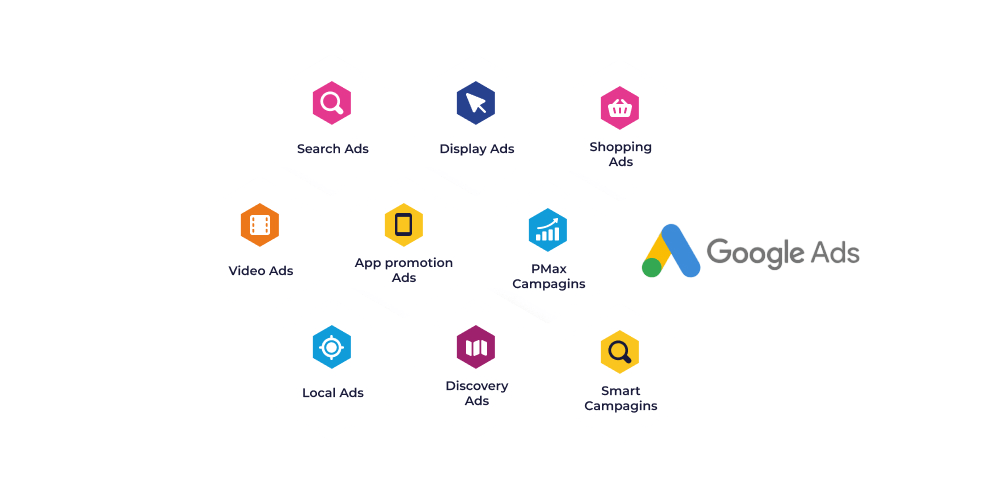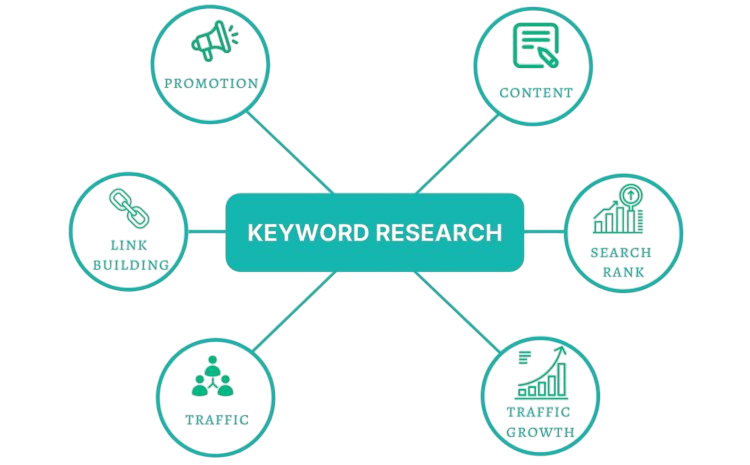
- What is a Google Ads Specialist?
- Key Skills and Certifications
- Google Ads Certification Guide
- Learning the Google Ads Interface
- Types of Google Ads Campaigns
- Keyword Research Techniques
- Writing Ad Copy that Converts
- Optimizing Ads and Bids
- Conclusion
What is a Google Ads Specialist?
A Google Ads Specialist is a digital marketing professional who focuses on creating, managing, and optimizing pay-per-click (PPC) advertising campaigns using the Google Ads platform. These specialists help businesses reach their target audiences by placing ads in Google search results, YouTube, and the Google Display Network. Their primary goal is to maximize return on investment (ROI) by ensuring that ads are relevant, engaging, and well-targeted. With the growing importance of online advertising, companies increasingly rely on Google Ads Specialists to drive website traffic, generate leads, and increase sales.A Google Ads Specialist is a Digital Marketing Training professional who manages and optimizes paid advertising campaigns on Google’s advertising platform, Google Ads. Their primary goal is to help businesses reach their target audience, increase online visibility, drive traffic, and generate leads or sales through paid search and display advertising. Google Ads Specialists are skilled in creating and managing various types of ad campaigns, including Search, Display, Video (YouTube), Shopping, and App campaigns. They conduct keyword research to identify relevant search terms, write compelling ad copy, set up bidding strategies, and monitor campaign performance using analytics tools. In addition to launching campaigns, these specialists continuously analyze and optimize ad performance by adjusting keywords, targeting settings, bids, and ad creatives to improve return on investment (ROI). They also run A/B tests to compare different versions of ads and landing pages.
Ready to Get Certified in Digital Marketing? Explore the Program Now Digital Marketing Online Training Offered By ACTE Right Now!
Key Skills and Certifications
- Keyword Research: Ability to identify high-performing, relevant search terms.
- Campaign Management: Proficient in setting up, managing, and optimizing different Google Ads campaigns (Search, Display, Video, etc.).
- Ad Copywriting: Writing compelling and high-converting ads that match user intent.
- Bid Strategy Management: Understanding automated and manual bidding techniques to maximize ROI.
- Data Analysis: Interpreting campaign metrics using tools like Google Ads dashboard and Google Analytics Social Media as the Umbrella .
- Landing Page Optimization: Ensuring landing pages align with ad messaging and drive conversions.
- A/B Testing: Testing variations in ads, keywords, and landing pages to improve performance.
- Budget Management: Allocating and adjusting ad spend effectively for maximum efficiency.
- Audience Targeting: Using demographics, interests, and behaviors to reach the right users.
- Knowledge of PPC Trends: Staying updated on Google Ads algorithm updates and paid media best practices.
Recommended Certifications:
- Google Ads Search Certification.
- Google Ads Display Certification.
- Google Ads Video Certification (YouTube Ads).
- Google Ads Measurement Certification.
- Google Shopping Ads Certification.
- Google Analytics Certification (GA4).
- Meta Blueprint (optional, for broader PPC skills).
Google Ads Certification Guide
The Google Ads Certification is an official recognition from Google that validates your proficiency in using the Google Ads platform. Offered through Google Skillshop, these certifications are free and ideal for anyone looking to demonstrate their digital advertising skills Smart Ways to Learn whether you’re a beginner or an experienced marketer.
Why Get Certified?
- Proves your expertise to employers and clients
- Enhances your resume or portfolio
- Builds confidence in managing real ad campaigns
- Helps agencies earn Google Partner status
Available Google Ads Certifications:
- Google Ads Search Certification – Focuses on text ads and search campaigns.
- Google Ads Display Certification – Covers image/video ads on the Display Network.
- Google Ads Video Certification – For YouTube video advertising strategies.
- Shopping Ads Certification – Best for e-commerce advertisers using Google Shopping.
- Apps Certification – Focused on promoting mobile apps through Google Ads.
- Measurement Certification – Covers campaign performance and analytics.
- Use Google Keyword Planner: Start with Google’s free tool to find keyword ideas, search volume, and competition levels.
- Focus on User Intent: Choose keywords based on what the user is looking to do informational, navigational, or transactional searches.
- Analyze Competitor Keywords: Use tools like SEMrush, Ahrefs, or SpyFu to discover keywords your competitors are bidding on Understanding Digital Marketing.
- Include Long-Tail Keywords: Target more specific phrases (e.g., “best running shoes for flat feet”) that may have lower competition and higher conversion rates.
- Check Search Volume & CPC: Balance between high search volume and cost-per-click (CPC) to ensure profitability.
- Identify Negative Keywords: Add irrelevant or low-converting terms as negative keywords to avoid wasted ad spend.
- Use Google Search Suggestions: Look at autocomplete and “People Also Ask” sections for real user queries.
- Explore Customer Language: Use customer reviews, forums, or surveys to find the exact words your audience uses.
- Test and Refine Regularly: Continuously monitor keyword performance and refine your list based on results.
- Consider Location-Based Keywords: Include geo-targeted terms if you’re running local campaigns (e.g., “dentist in Chicago”).
- A/B Test Your AdsContinuously test different headlines, descriptions, and calls-to-action to find the best-performing ad combinations.
- Monitor Quality ScoreImprove Quality Score by enhancing ad relevance, click-through rate (CTR), and landing page experience.
- Analyze Performance Metrics RegularlyTrack CTR, conversion rate, cost-per-click (CPC), and impressions to identify underperforming ads or keywords.
- Pause Low-Performing Keywords and Ads: Regularly remove or pause ads and keywords that aren’t delivering results to reallocate budget effectively Search Engine Marketing.
- Use Ad Extensions: Add sitelinks, callouts, and structured snippets to increase ad visibility and provide more value.
- Schedule Ads Strategically: Run ads during high-conversion hours/days using ad scheduling based on historical performance data.
- Geo-Target for Better Relevance: Adjust bids by location to prioritize areas with higher conversion rates.
- Adjust Bids by Device & Audience: Optimize bids based on device performance and audience segments (e.g., mobile users or returning visitors).
- Optimize Landing Pages: Ensure landing pages align with ad messaging and are fast, mobile-friendly, and conversion-focused.
To Explore Digital Marketing in Depth, Check Out Our Comprehensive Digital Marketing Training To Gain Insights From Our Experts!
Learning the Google Ads Interface
Familiarity with the Google Ads interface is essential for managing campaigns effectively. The platform includes a dashboard where specialists can create and manage ad groups, keywords, budgets, Types of Google Ads Campaigns and targeting options. Understanding how to navigate different sections such as Campaigns, Ad Groups, Keywords, Ads, and Reports is vital. Users must also learn to interpret key metrics such as Click-Through Rate (CTR), Cost Per Click (CPC), Quality Score, and Conversion Rate. Spending time on the platform, taking online tutorials, and practicing with a demo account can help accelerate the learning curve and build confidence in campaign management.Understanding the Google Ads interface is essential for effectively managing and optimizing ad campaigns. The platform is organized into a dashboard that provides access to key features such as campaign creation, ad groups, keyword targeting, audience settings, bidding strategies, and performance reports. Upon logging in, users are greeted with an overview of account performance, including metrics like impressions, clicks, conversions, Digital Marketing Training and cost. The left-hand menu allows quick navigation between campaigns, ad groups, and settings. Within each campaign, you can manage ads, keywords, budgets, and extensions. The “Tools & Settings” section gives access to advanced features like the Keyword Planner, Audience Manager, and Conversion Tracking setup. Reports and dashboards can be customized to analyze specific data points and monitor trends over time. As you become familiar with the interface, you’ll be able to quickly identify what’s working and what needs adjustment. Regular use and exploration, along with Google’s guided tutorials, can significantly improve your comfort and efficiency with the platform. Mastering the interface is a critical step in becoming a successful Google Ads Specialist, as it directly impacts how effectively you can launch, manage, and optimize campaigns.
Types of Google Ads Campaigns
Google Ads offers several campaign types tailored to various marketing objectives. Search campaigns display text ads on Google’s search engine results page when users type in relevant queries. Display campaigns show visual ads on a vast network of websites and apps All Marketing Will Soon Be Digital Marketing. Video campaigns target users on YouTube with short, skippable or non-skippable ads. Shopping campaigns promote e-commerce products through Google Shopping.

App campaigns help promote mobile applications across Google’s networks. Each campaign type requires a different strategy and understanding, and mastering them all gives a Google Ads Specialist the versatility to support diverse business goals.
Looking to Master Digital Marketing? Discover the Digital Marketing Expert Masters Program Training Course Available at ACTE Now!
Keyword Research Techniques:

Writing Ad Copy that Converts
Effective ad copy is critical for driving clicks and conversions. Google Ads Specialists must craft headlines and descriptions that are clear, relevant, and action-oriented. Headlines should include targeted keywords to improve Quality Score and Ad Rank. Descriptions must highlight unique selling points, promotions, or value propositions. Strong calls-to-action (CTAs) such as “Buy Now,” “Learn More,” or “Get Started” prompt users to take the desired action. A/B testing different versions of ad copy helps identify what resonates best with the target audience, leading to continuous improvement and better campaign results.Effective ad copy is crucial for capturing attention and driving clicks in a competitive advertising space Guide to Search Engine Optimization . To write ad copy that converts, focus on clarity, relevance, and value. Start with a strong headline that aligns with the user’s search intent and includes your primary keyword. Highlight the key benefits or unique selling points of your product or service—what makes you stand out? Use clear, action-oriented language that tells the user exactly what to do next, such as “Shop Now,” “Get a Free Quote,” or “Sign Up Today.” Including numbers, promotions, or limited-time offers can also create urgency and encourage immediate action. Make sure your display URL is clean and relevant, and that your description reinforces the message in the headline while addressing potential customer pain points. Finally, test multiple versions of your ad copy (A/B testing) to see which messages perform best. Strong, persuasive ad copy not only increases click-through rates but also helps improve quality score and lowers cost-per-click, making your Google Ads campaigns more effective and efficient.
Preparing for Digital Marketing Job Interviews? Have a Look at Our Blog on Digital Marketing Interview Questions and Answers To Ace Your Interview!
Optimizing Ads and Bids
Conclusion
Becoming a Google Ads Specialist is a rewarding career path for those interested in Digital Marketing Training , analytics, Types of Google Ads Campaigns and advertising strategy. It requires a combination of technical proficiency, analytical thinking, creativity, Keyword Research Techniques and continuous learning. By mastering Google Ads tools, obtaining certifications, and staying updated with trends, one can build a strong professional profile. Whether you choose freelancing or agency work, opportunities abound in this growing field. From running campaigns to analyzing performance, the role offers diverse challenges and the satisfaction of helping businesses grow. With the right dedication and strategy, you can excel as a Google Ads Specialist and carve a niche in the digital advertising landscape.




